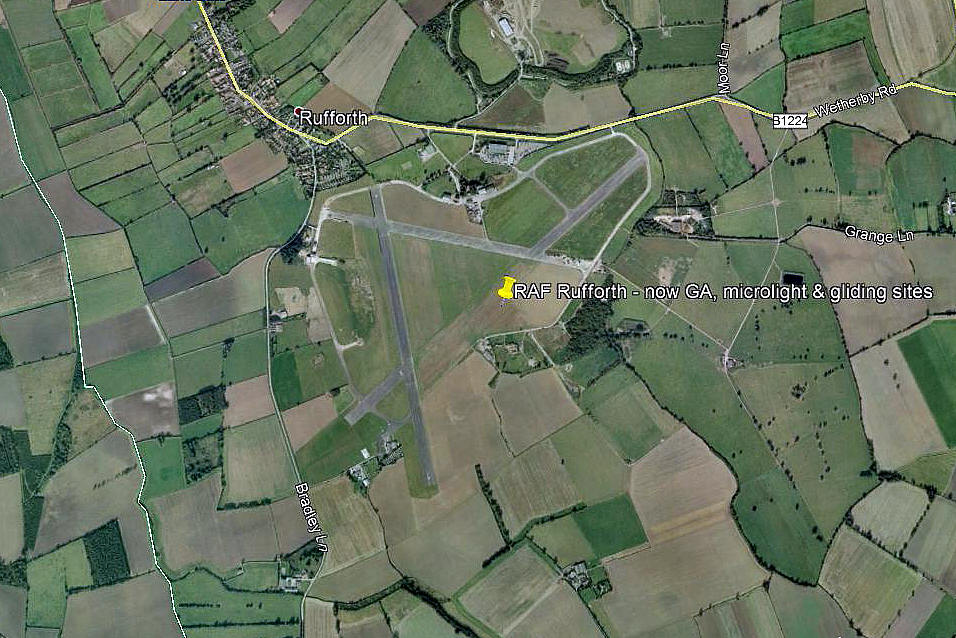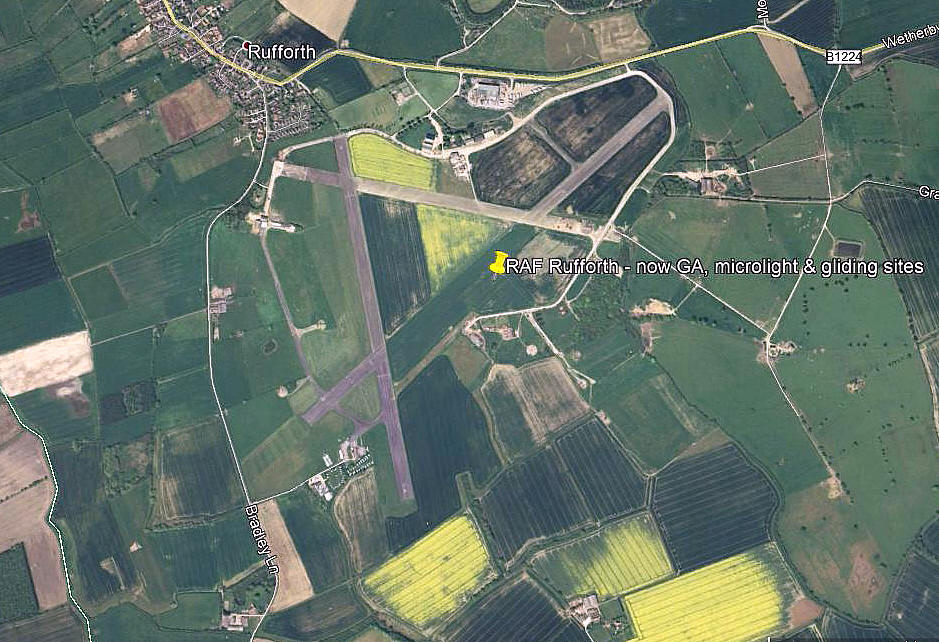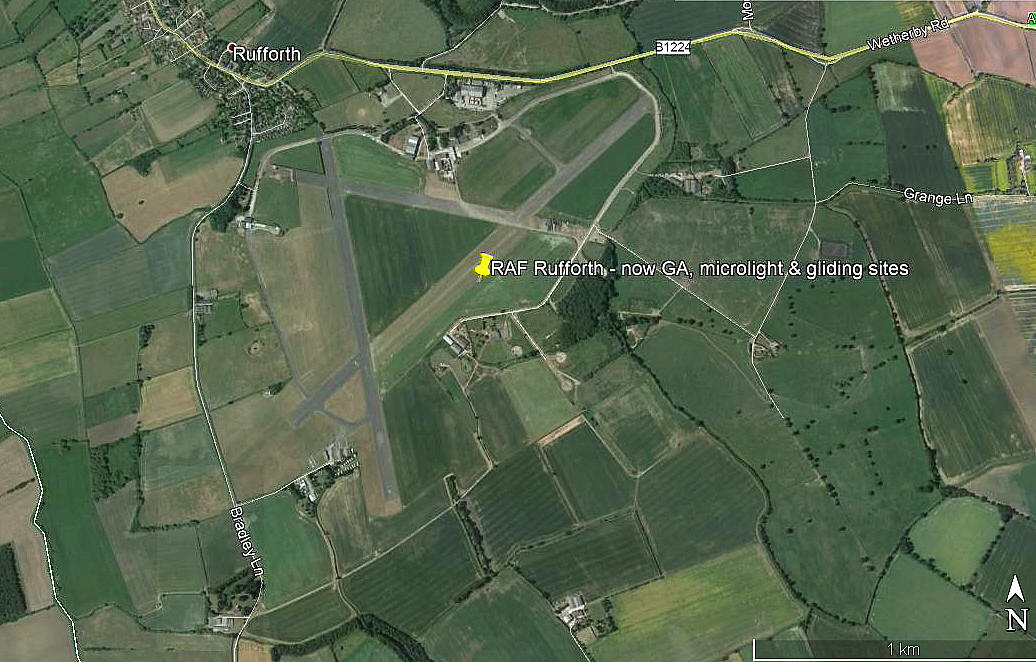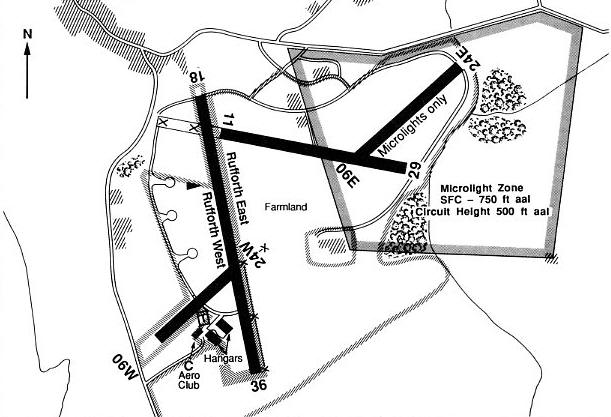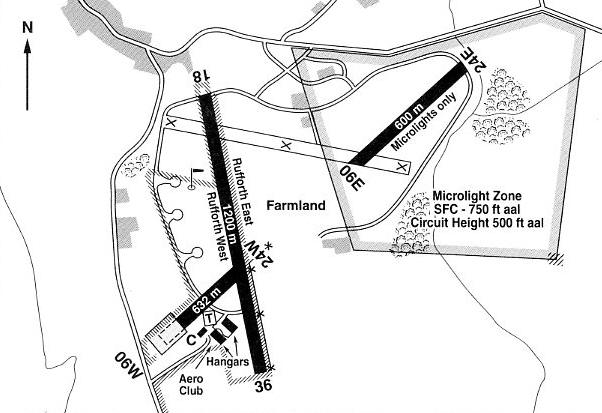Rufforth
RUFFORTH: Military aerodrome later private airfield (also now known as YORK - but this is not strictly speaking correct)
Note: All three of these pictures were obtained from Google Earth ©
Military user: WW2: RAF Bomber Command 7 Group
1663 HCU [Heavy Conversion Unit] (Handley Page Halifaxs)
Operated by: 1980s: Ouse Flying Club
Also by 1990: Ouse Gliding Club
1970s (?) to 2000s: RUFFORTH WEST: York Gliding Centre
RUFFORTH EAST: 1990: Bailey Aviation Company
Users: Post 1954: Gliding aerodrome with civil powered visitors allowed, York Flying Club
Location: S of B1224, SE of Rufforth village, 3nm W of York
Period of operation: Military: 1942 to 1954? Civil activity later
Notes: These maps are reproduced with the kind permission of Pooleys Flight Equipment Ltd. Copyright Robert Pooley 2014.
Runways: WW2: 18/36 1280x46 hard 06/24 1829x46 hard
11/29 1234x46 hard
1990: 18/36 1200x46 hard 06/24 (E) 600x46 hard
2000: 18/36 1200x46 hard 06/24 (W) 632x46 (358m grass + 274m hard)
06/24 (E) 600x46 hard
Note: Here is another WW2 aerodrome, (WOMBLETON is another example), which has divided itself into what is almost two entirely separate aerodromes. In recent years gliders use the western part and microlights the eastern.
NOTES: Here again only a tiny minor point, but, why was runway 11/29 just fifty yards shorter than that proscribed for the standard aerodrome bomber base runway layout, did they run out of concrete when building it?
SPOTTERS NOTES
During 1976/7 two GA types were listed as being based here: The Druine D.62C Condor G-AZMV of the Ouse Gliding Club and the PA-18 Super Cub G-BBYB of Hornet Aviation Ltd
In 1985 the use of this area was listed as agriculture so I assume gliding, (and even later microlight?), activity commenced at a later date. But is this the case?
SKYWATCH
Arnold Parker, a member of the York Flying Club received a Certificate of Commendation at the RAeC Awards ceremony in February 2005 for founding Sky Watch which then had 150 aircraft and helicopters at its disposal. The Sky Watch organisation is entirely voluntary and offers members aircraft to help and assist in a wide variety of spotting and locating duties.
A REMARKABLE ACHIEVEMENT
On the 28th April 2011 ‘Wheely Dave’ Sykes, who had been confined to a wheelchair since a serious motoring accident, took-off in a P&M Aviation Quik flex-wing microlight (G-CCSY) to fly to Australia with no specific additional enroute help regarding his disability. He made it, arriving in Sydney having covered 23,000km in 227 hours flying. Without much doubt one of the most notable feats of flying in aviation history, but I wouldn’t hold your breath awaiting a monument to erected.
We'd love to hear from you, so please scroll down to leave a comment!
Leave a comment ...
Copyright (c) UK Airfield Guide














